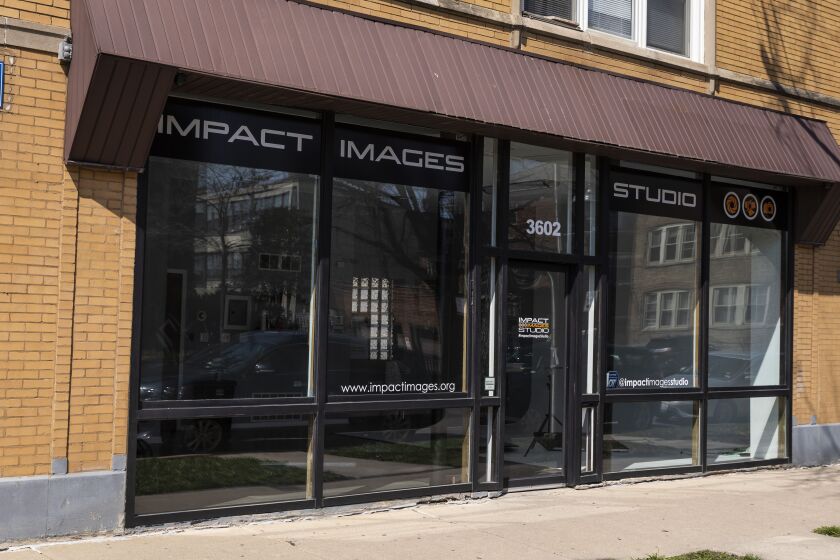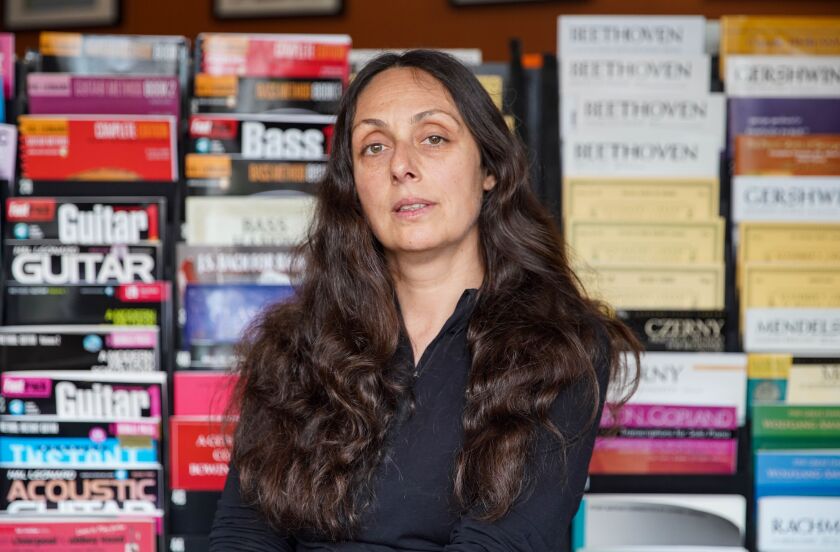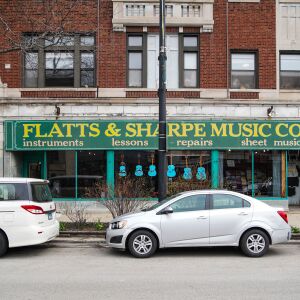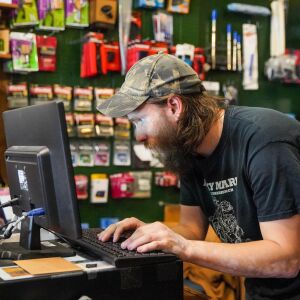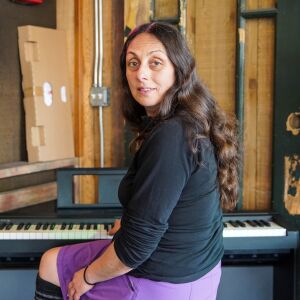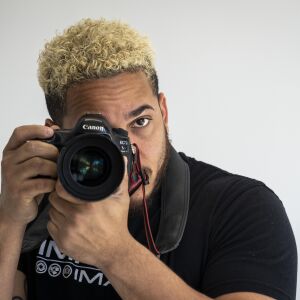Photographer Chris Costoso had just signed the lease to expand his business when Gov. J.B. Pritzker issued his first stay-at-home order in early March.
Costoso initially saw the statewide shutdown of nonessential businesses as a chance to regroup after two busy years that included several destination weddings as well as being Bill Daley’s personal photographer in his failed 2019 mayoral bid.
But then five big weddings were canceled in the first week of the stay-home order, which for now runs through the end of April.
So, like many small businesses in Chicago, Costoso was left hoping for a little help from the federal government.
“All of our income stopped, and if I don’t have some kind of support soon I will have to turn in the key to the new storefront,” said Costoso. “If this extends past April 30, we will have to shut down both [spaces] and rebuild.”
Costoso’s studio is in the back of a building at Addison Street and Lavergne Avenue in Portage Park. He was excited about leasing the front, too. But now, he needs at least $30,000 to $40,000 in loans to make payroll and keep his doors open.
Costoso said he applied as soon as he learned about the federal stimulus package, which included money to help businesses survive the pandemic.
The Coronavirus Aid, Relief, and Economic Security (CARES) Act allocated $377 billion to support small businesses nationwide but several Chicago businesses, like Costoso’s, still feel adrift.
“Everyone is saying there is so much help out there, but I can’t even get a call back,” said Costoso.
“We are stranded trying to figure out when the help will come and if it will be too late when it does,” he added. “I can’t wait another week.”
The stimulus was lauded as a lifeline, but its rollout has been marred by a bevy of problems, including repeated crashes of the online loan application.
The majority of the aid came by in the form of two types of federal loans: the already functioning Economic Injury Disaster Loans and the new Paycheck Protection Loans. Businesses can apply for both.
Paycheck protection loans will be administered by local banks and credit unions. Eligible lenders can be found on the U.S. Small Business Administration’s website. Businesses can apply for 2.5 times their average monthly payroll cost.
Jenise Rodriguez, owner of Sanar Aesthetics in Logan Square, said she is drowning in paperwork she submitted to the SBA.
Rodriguez said the lease for her Logan Square storefront ends May 1; she planned to move to a larger spot nearby, but without any income she was unable to sign a new lease and now is unsure if she will make May’s rent for her current location.
Rodriguez applied for the Economic Injury Disaster Loan shortly after the CARES Act passed. Lenders can borrow up to $2 million. It includes a $10,000 “emergency” grant available “within days of a successful application,” according to the SBA.
Weeks after applying, however, Rodriguez still is uncertain where her application stands; she isn’t expecting a response soon.
Sandi Price, executive director of Rogers Park Business Alliance, said many small businesses are in a similar position.
“For the most part our members are completely freaked out with a lot of stress,” Price said. “The message we are hearing loud and clear right now is ‘we need money now.’”
Price said the alliance urges members to apply for everything they can; a list of available loans and grants is on their website and updated daily.
“In my opinion the government has been working as quickly as they can,” Price said. “But business owners are trying to keep their staff paid and keep their business running, so not receiving an immediate response can be difficult for them.”
Chris Bell, owner of Flatts & Sharpe Music Company, applied for both federal loans.
The SBA loan application was easy enough; she filled it out in under 30 minutes. She knows the government won’t respond nearly as quickly.
“I am not expecting to see any money from the government, at least not immediately,” Bell said. “If I was hurting right now I would be losing my mind not knowing.”
Bell said she can stay afloat for another four months; she started offering online courses and sales before the state’s stay-at-home order was issued. She also reduced hours and wages.
Experience told her to be prepared; she opened only a year before the Great Recession hit. Bell expects the worst is still to come.
“I know from 2008 we didn’t feel the hit until 2009,” Bell said. “I am not worried about right now, I am worried about January 2021. I’m absolutely terrified by it.”
Manny Ramos is a corps member in Report for America, a not-for-profit journalism program that aims to bolster Sun-Times coverage of issues affecting Chicago’s South and West sides.

